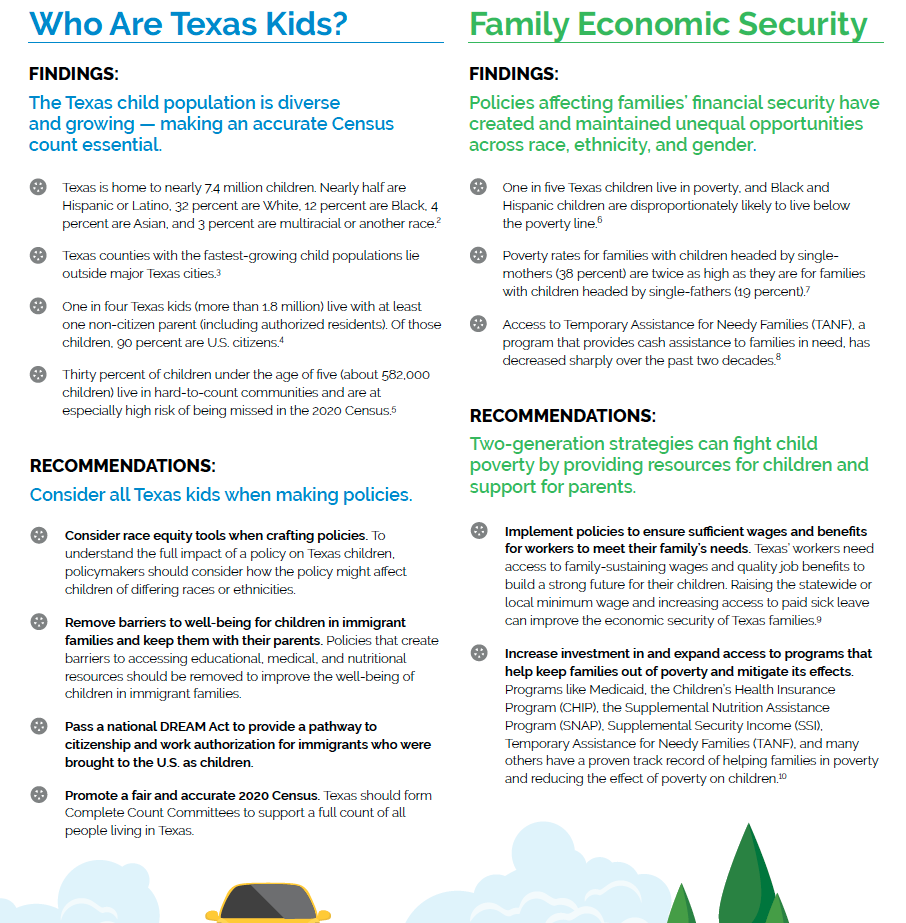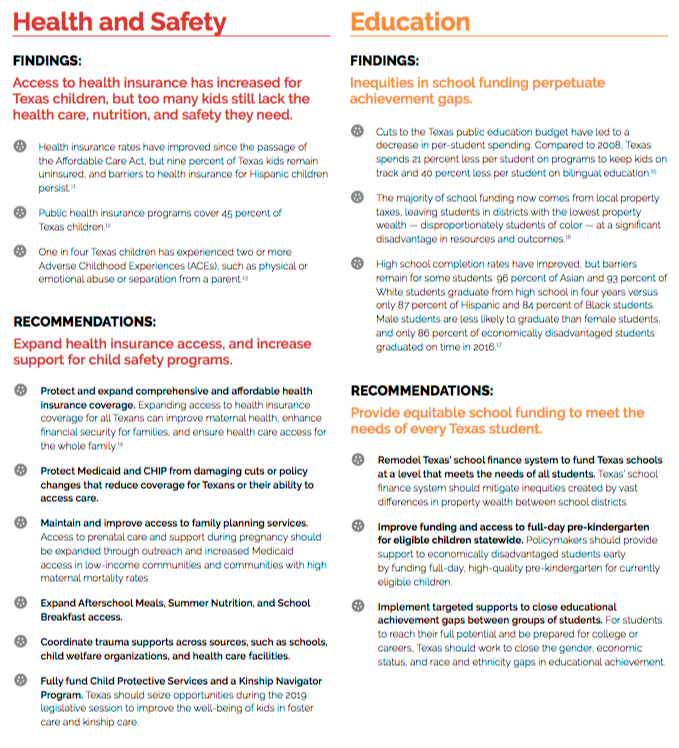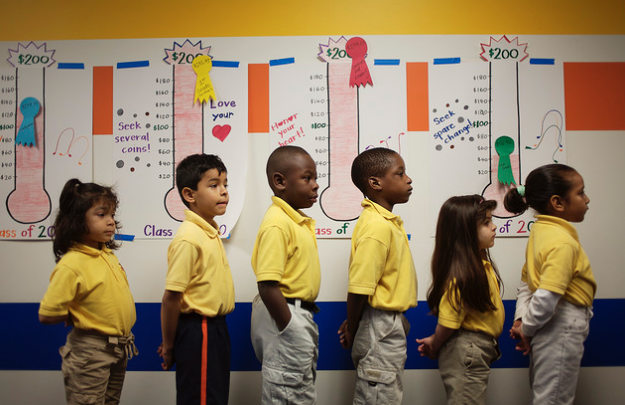In its annual report on the state of children in Texas, the Center for Public Policy Priorities details a number of policy recommendations that could help boost childhood well being across the state. And this year, there's a new focus on the importance and challenges of the upcoming 2020 census.
"Young children are one of the most likely groups to be missed in the Census," according to the report, which estimates that 30 percent of Texas children under the age of 5 are at high risk for being missed in the count. If the state's population is undercounted by even 1 percent, argues the report, "Texas could lose at least $300 million per year."
Because the census determines not only Congressional representation but also federal funding for a number of important services including education, housing and health care, getting an accurate count is critical to accessing those resources. "Undercounting Texas' kids could mean billions less over the next decade for education, school lunches, Head Start, Medicaid, the Supplemental Nutrition Assistance Program, and the Children's Health Insurance Program," the report argues.
Across the country, "Researchers believe up to 2 million children under age 5 could be missed in the count, for a variety of reasons," according to the Annie E. Casey Foundation, one of the funders for the annual report from CPPP that is part of a larger Kids Count national effort. "That's about how many were missed last time around, and the problem has worsened with every census since 1980."
The 2020 census appears to be in particular danger, according to experts, in part due to underfunding as well as the potential inclusion of a citizenship question. Though the question's inclusion is the subject of current court proceedings expected to go all the way to the Supreme Court, some worry the damage of a question that could make many respondents fearful or hesitant has already been done.
To combat a potential undercount in Texas, State Representative César Blanco recently filed House Bill 255, or the Every Texan Counts Act, for the upcoming state legislative session. The bill would establish a complete count commission to "develop, recommend, and assist in the administration of a census outreach strategy to encourage full participation in the 2020 federal decennial censusm" according to the bill's text.
"We’re seeing states throughout the country putting a budget behind the census count," said Blanco at a recent panel discussion on the 2020 census, "we can do the same.”
Many of the report's other recommendations touch on services and programs funded, in part, by the federal government, underscoring the importance of the census. Though the report is statewide, its findings and recommendations could easily be applied to Houston and other major metropolitan areas in the state as well. So, for example, while the report finds that one in five children across the state lives in poverty, that number is higher in Houston and black and Hispanic children are more likely to live in poverty than their peers. As the number of families benefitting from cash assistance has declined over the past two decades thanks to restrictions and program changes, many families have had to make do with less support.
Below are the summary findings and recommendations from this year's report.

Source: Center for Public Policy Priorities.

Source: Center for Public Policy Priorities.

